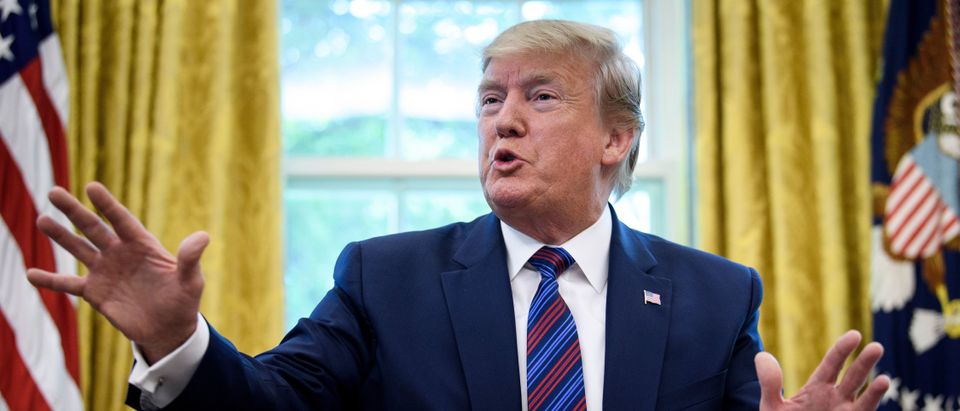To understand fully the implications of Donald Trump’s “make America great again,” it’s worthwhile considering his resurgent nationalism in the context of historical trends going back over three centuries. MAGA is not only an effort to restore American strength; it also represents Trump’s desire to maintain the primacy of the nation-state at the expense of more multilateral, globalized approaches to problems.
A French friend told me almost 50 years ago, “Charles, you have to have a system.” This advice applies to nations as well as individuals. For over 350 years, since the 1648 Peace of Westphalia ended the Thirty Years War that engulfed much of Europe in religious warfare, the organizing system throughout most of the world has been the nation-state.
The Peace of Westphalia codified the decline of religious leaders and the rise of the leaders of sovereign nation-states. Westphalia’s famous Latin phrase, “cuius regio, eius religio,” settled that era’s religious disputes by declaring: “he who rules decides the religion.”
Occasional outbursts like the 1789 French Revolution pitted the Three Estates (clergy, nobility, and commoners) against each other, but secular political authority ultimately prevailed after a reign of terror that ended with the advent of a strong national leader, Napoleon Bonaparte.
Today, we take the nation-state system for granted and forget that the world wasn’t always organized along lines of territorial, national borders. During the feudal period, the organizing system entailed lord-peasant relationships that governed the economic and political use of land. That system gave way to the primacy of the church. Tensions gradually arose between leadership in Rome and the increasingly secular leadership in the Holy Roman Empire and elsewhere.
The 1439 invention of Gutenberg’s printing press helped launch the first wave of populist challenges against religious orthodoxy, governance, and supremacy. Between 1522 and 1534, Martin Luther translated the Bible from Latin into his native German.
Luther’s work unleashed a wave of religious reforms that included increased lay participation, especially in celebrating and receiving the mass. Luther’s “priesthood of all believers” led to the gradual weakening not only of individual clerics but of papal authority throughout much of Western Europe.
Since the Peace of Westphalia, there have been shifting alliances among nation-states (the Axis, the Allies, NATO, the first Persian Gulf War’s coalition, for example) but efforts that would require ceding national sovereignty to some larger, supranational structure have rarely gained traction.
The European Union’s efforts to establish common defense, common budget, and common financial-oversight structures illustrate the challenges, alongside the difficulties of maintaining a common currency with only lax enforcement measures when national budget deficits get out of line. Efforts to solve Europe’s North African and Middle Eastern refugee crisis offer yet another example of the difficulties of multilateral approaches.
There have been occasional efforts invoking global governance designed to transcend the nation state (the League of Nations, Wendell Willkie’s “One World” campaign, and the United Nations itself), but the Westphalian construct has mostly prevailed.
Today, however, may be altogether different. The internet, social media, and cyber are creating disruptive forces unlike any seen since Gutenberg’s printing press. The challenges posed by internet governance, taxation, and privacy standards transcend state borders and are placing considerable stress on the nation state as the dominant system for resolving such global disputes.
Along comes Trump with his MAGA priority. Thus far, Trump’s MAGA has included: ending a proposed Pacific trade agreement, dissing the Paris Climate Change accords, roughing up NATO and the U.N. over member contributions, pursuing bilateral trade accords, and terminating U.S. participation in the Iran nuclear deal. Trump’s enthusiastic embrace of United Kingdom Prime Minister Boris Johnson and Brexit is consistent with MAGA’s underlying premise: the need to reassert national sovereignty.
Trump’s seeming fondness for authoritarian national leaders (Rodrigo Duterte, Kim Jong Un, Viktor Orban, Vladimir Putin, and Xi Jinping) who are determined to assert their own national primacy, contrasts with leaders like France’s Emmanuel Macron or Germany’s Angela Merkel, who are more comfortable with ceding more national sovereignty to Brussels or pursuing a multinational compromise with Iran.
Many of today’s emerging geopolitical threats and economic concerns are multilateral and global in nature. Today’s technological developments (like Gutenberg’s printing press) are creating new challenges and speeding up the timeframe in which they must be resolved.
Will the Westphalian nation-state continue as the world’s principal operating system, or will some new structure evolve to supplant it? It’s still too soon to know. Stay tuned.
Charles Kolb was deputy assistant to the president for domestic policy in the George H.W. Bush White House from 1990-1992. From 1997-2012, he was president of the nonpartisan, business-led think tank, the Committee for Economic Development.
The views and opinions expressed in this commentary are those of the author and do not reflect the official position of The Daily Caller.


